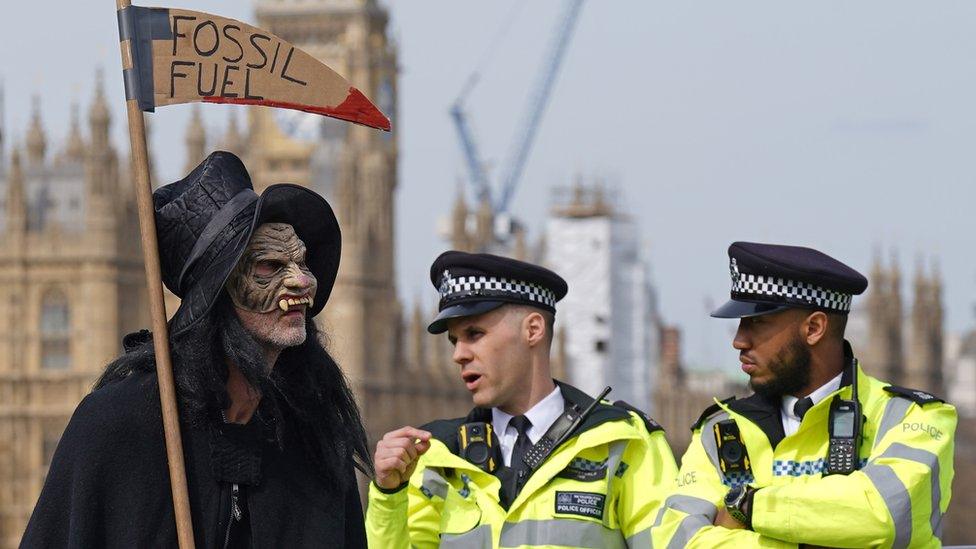Bristol GP was 'prepared to risk career' for climate protest
- Published
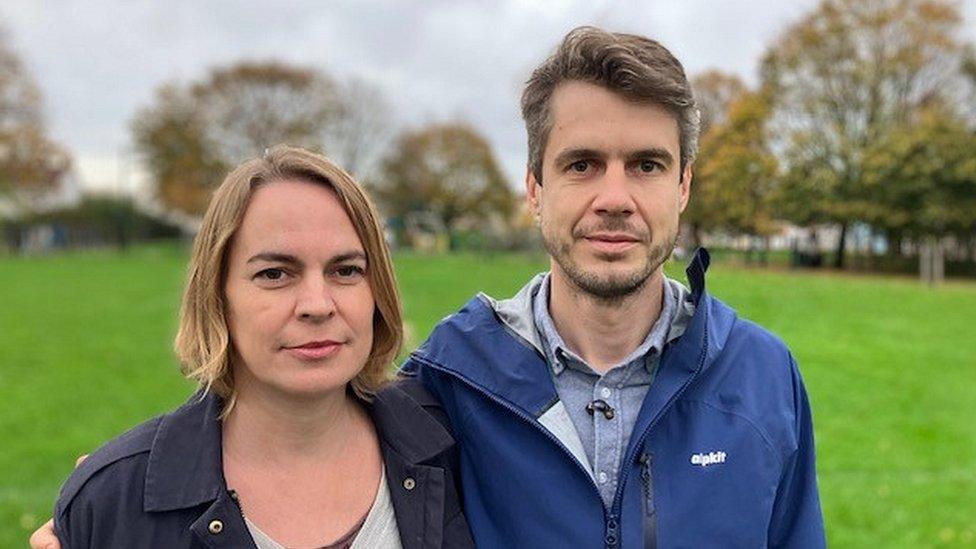
GP Dr Patrick Hart and clinical psychologist Dr Rosie Jones cited in defence of their actions their professional guidelines to preserve life
Health professionals have vowed to continue protesting about the climate emergency after being acquitted of breaching public order.
Dr Patrick Hart, from Bristol, Dr Rosie Jones, from Bath, and retired doctor David McKelvey from Manchester blocked London's Lambeth Bridge on 10 April for an Extinction Rebellion (XR) protest.
They cited their professional guidelines to preserve life as defence.
Dr Hart said he was prepared to risk his career for the cause if needed.
"If that's what it takes to do the right thing," he was absolutely prepared to do it, he said.
They formed a group of up to 30 health professionals when they blocked the bridge in London.
Seven health professionals, including GP Dr Hart and clinical psychologist Dr Jones, were acquitted at City of London Magistrates' Court on Tuesday after facing a charge of a breach of section 14 of the public order act.
XR said the judge decided the necessary steps, required for imposing the breach of section 14, had not been taken.
The judge said he was "impressed by the integrity and rationality of their beliefs" and found the doctors' evidence "highly moving", XR said.
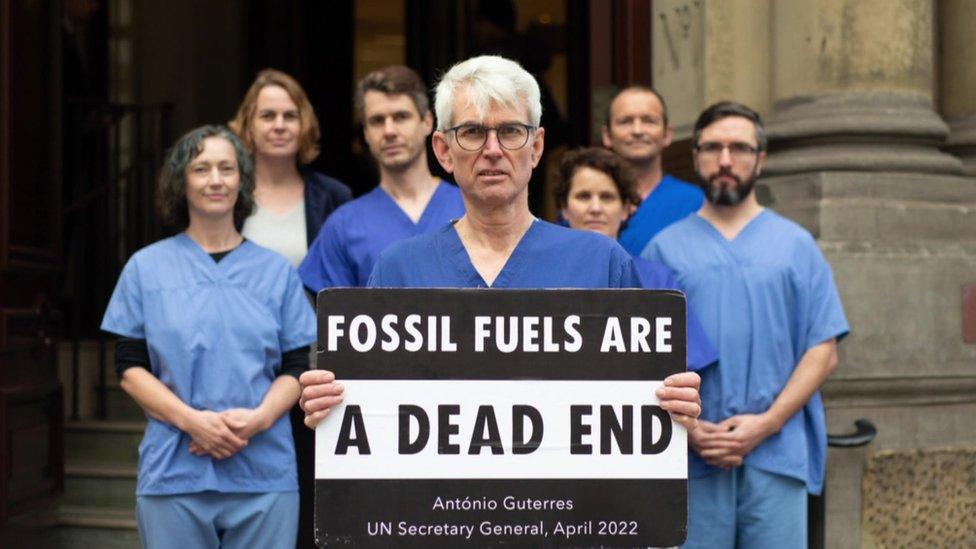
Dr David McKelvey (centre) said he and fellow medical workers attended court dressed in scrubs "to identify that we are professionals"
Dr McKelvey now works as a clinical lead in primary care sustainability where he said he was "trying to improve the environmental impact" of healthcare".
He said he was scared for the future of the people he knew and worked with in Tanzania, where he witnessed crop failures and the effects of climate change.
"Kilimanjaro is this iconic volcanic mountain in Tanzania... if there's no snow on the top, what's happening to the people on the plains - those people that we loved and worked with?"
He said he recognised the personal risk involved in taking direct action but asked: "What's putting everything at risk? It's not this, it's climate change".
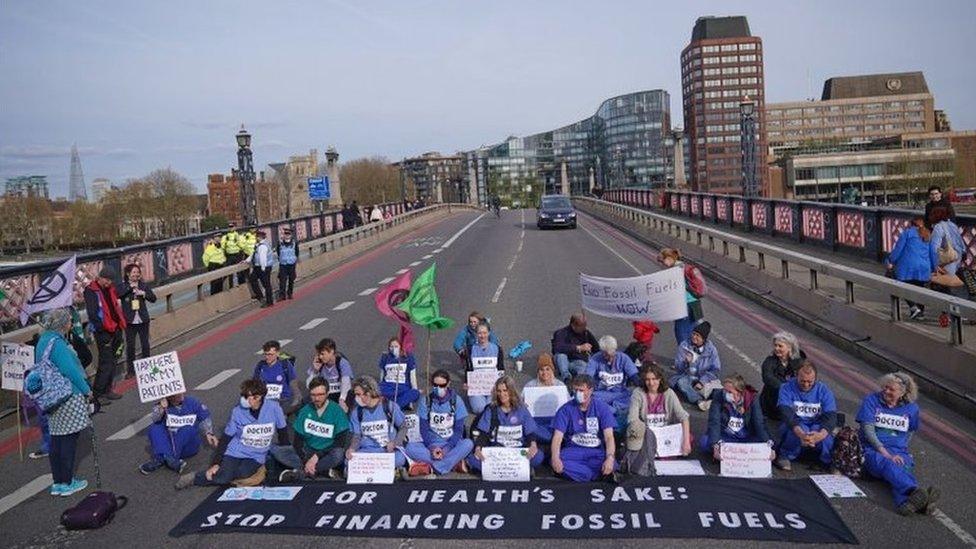
Dr McKelvey and other health professionals were among protesters blocking Lambeth Bridge
The Home Secretary, Suella Braverman, has warned police they are losing the public's confidence in their efforts to halt Just stop Oil protests.
The Government is now introducing longer sentences for protesters who cause disruption to daily lives.
Police can use new laws to deny protesters bail, in order to prevent them repeatedly returning to block roads, as well as charging them with conspiracy offences that carry a maximum 10-year jail sentence.
Dr Hart described the legislation as a "frightening prospect" adding: "We have seen new offences created and even a proposal of action that could be taken without seeing a conviction.
"Currently the Lords are debating whether protesters can be tagged and monitored for simply having attended a protested, without being convicted."
'Protect my patients'
Dr Hart and Dr Jones argued that as healthcare professionals they had a duty to care for patients and to prevent harm when they saw it happening.
Dr Hart said: "We believe that, as part of doctors for XR, we have a duty to take that to the streets if that's the best means we have of protecting our patients."
Faced with the prospect of a heavy fine and even action from their disciplinary body if found guilty, both medics said they would be prepared to take part in protests again.
Dr Hart said: "I am absolutely prepared to risk my career, if that's what it takes to do the right thing and protect my patients."
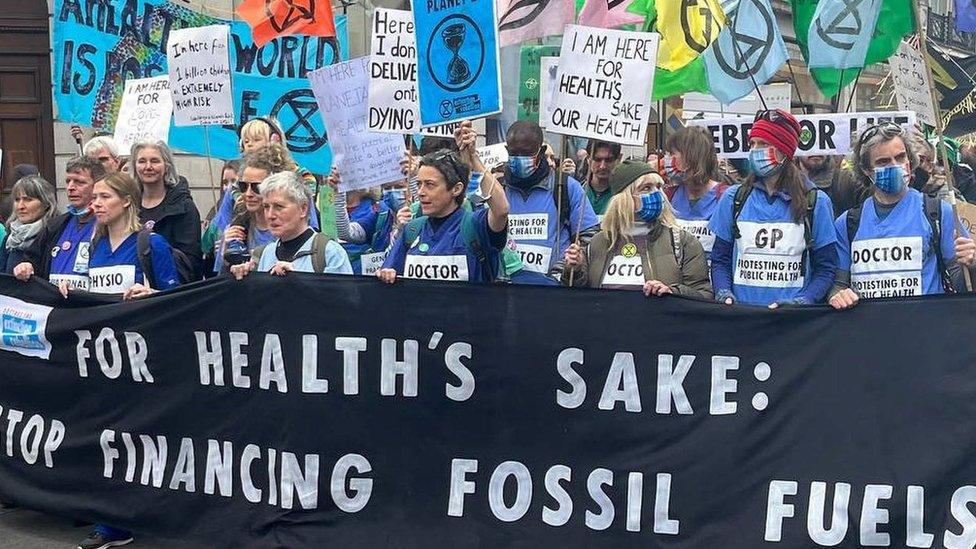
A group of up to 30 health professionals blocked Lambeth bridge on 10 April
In April, protesters displayed a banner that said 'For Health's Sake. Stop Financing Fossil Fuels', which aimed to draw attention to the annual financial support of approximately £10bn for the fossil fuel industry.
Dr Jones said: "Police approached us and told us that they had instituted a direction and that we had two choices, to leave or be arrested... in about five or six minutes I was arrested."
Asked about the inconvenienced caused to thousands of people going about their daily lives, Dr Hart replied: "In our court case the judge was very clear to say we absolutely did not cause any disruption to emergency services, but yes we caused disruption to ordinary people's lives.
"It breaks my heart that's what it has come to, but we have seen decades of complete failure of our politics to take action on the climate crisis."
The UK is already a world leader in offshore wind and has scaled up its offshore wind production plans.
UK governments have been relatively successful in cutting emissions from energy. These fell by 73.4% between 1990 and 2021, largely as a result of closing coal-fired power stations, and by spending more money on solar, wind and nuclear energy.
However, the UK Climate Change Committee says the lack of a clear strategy in this area means the government risks not reaching its 2035 target.

Follow BBC West on Facebook, external, Twitter, external and Instagram, external. Send your story ideas to: bristol@bbc.co.uk , external
- Published20 November 2022

- Published20 November 2022
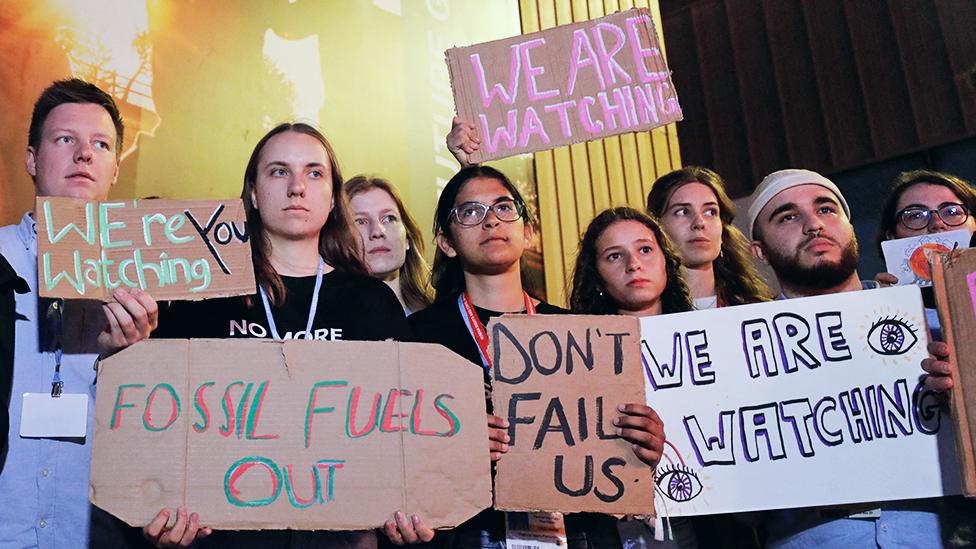
- Published3 May 2024

- Published10 April 2022
